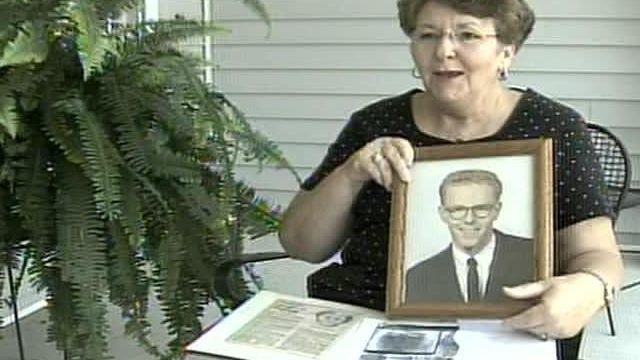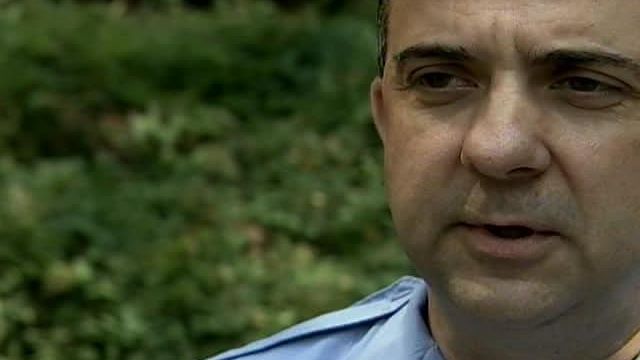Motel Clerk's Slaying Solved After 26 Years
Raleigh police said Tuesday they used modern fingerprint technology and old-fashioned detective work to crack an unsolved homicide from 1981.
Posted — UpdatedEverett Julious Alston, 64, assaulted Clyde Deward Sykes on May 3, 1981, causing injuries that led to Sykes’ death five days later, police said Tuesday.
Alston died of natural causes in 2000.
"It's a great feeling. We never close a murder investigation out," said Kent Sholar, interim chief of the Raleigh Police Department. "It's the oldest (unsolved murder) in Raleigh.
The announcement also was a relief to Sykes' family, who held out hope for more than a quarter century that his murder would be solved.
"We just have to commend the Raleigh police for never giving up," said his sister, Mary Ann Sides.
Sykes, 41, who had been working as the motel's night clerk, was found beaten and severely injured in Room 117 of the Howard Johnson’s Motor Lodge at 2723 Capital Blvd., police said. He died five days later as a result of his injuries.
A piece of concrete wrapped in a towel was located outside Room 129 and was determined to be the murder weapon.
A witness reported seeing a man matching Alston's description carrying a large object wrapped in a bedspread, police said, and a television and a bedspread stolen from the hotel were later discovered abandoned near Capital Boulevard.
The television had been taken from Room 336, where it had been forcibly removed from its locking stand, and the bedspread had been taken from Room 337, police said.
Other witnesses reported seeing a man they thought to be suspicious at various locations around the motel during the night Sykes was assaulted, police said.
Police have investigated the case since 1981, and detectives have reviewed it on numerous occasions since then. In March 2006, the Detective Division’s Major Crimes Task Force initiated another review of the slaying.
As part of the review, detectives requested that the City-County Bureau of Identification re-examine the fingerprint evidence collected during the initial investigation. Within three weeks, the CCBI told detectives that fingerprints obtained in rooms 336 and 117 had been identified as those of Alston.
The print match was obtained using the latest technology and techniques, including capabilities that were not available until recently.
"It certainly boosts our confidence in the technology when we see technology working, and it's also a motivator to try to solve other cases through the same type of technology," CCBI Director Sam Pennica said.
A criminal history check determined that Alston had a lengthy record of arrests for violent crimes in multiple states, and it showed that he was arrested in Durham on May 12, 1981.
If Alston had been alive, the Major Crimes Task Force concluded, probable cause would exist to issue an arrest warrant charging him with Sykes' death. Robbery was the likely motive for the slaying, police said.
The results of the review were submitted to former members of the Major Crimes Task Force, including retired investigators who had been involved in the initial investigation of the case, and the determination of the task force was validated. The evidence was then presented to the Wake County District Attorney’s Office, which concurred with the police department’s conclusions.
Although Alston will never be charged with the slaying, Sides said her family doesn't feel they have been denied justice.
"We don't have to go through a trial. We don't have to look at this man. We know that all is well," she said. "We had to learn to forgive this person a long time ago, or we would not have been able to live. You can't live with hate and bitterness."
Raleigh still has 16 unsolved murders, the oldest of which dates to 1994.
In that case, 17-year-old Beth Ellen Vinson, an aspiring Broadway dancer from Goldsboro, was found stabbed to death in a drainage ditch off Capitol Boulevard. Vinson had moved to Raleigh just a four weeks earlier.
The FBI brought national attention to that case last year.
• Credits
Copyright 2024 by Capitol Broadcasting Company. All rights reserved. This material may not be published, broadcast, rewritten or redistributed.






